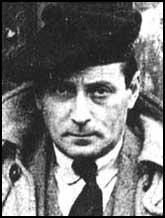Compton Mackenzie
(spook, author, politician, whistleblower) | |
|---|---|
 | |
| Born | Edward Montague Compton Mackenzie 17 January 1883 West Hartlepool, County Durham, England, UK |
| Died | 30 November 1972 (Age 89) Edinburgh, Scotland, UK |
| Alma mater | St Paul's School (London), Magdalen College (Oxford) |
| Spouse | Faith Stone |
| Exposed | MI6 |
His 1932 memoirs was the first time the Secret Intelligence Service was mentioned in print. The book was immediately withdrawn and all remaining copies were destroyed. | |
Sir Edward Montague Compton Mackenzie was an English-born Scottish writer of fiction, biography, histories and a memoir, as well as a cultural commentator, raconteur and lifelong Scottish nationalist. He was one of the co-founders in 1928 of the National Party of Scotland. He worked in British Intelligence in the Eastern Mediterranean during the First World War, later publishing four books on his experiences.
Disclosure of MI6
In 1932, his memoirs Greek Memories included his account of his experiences as a MI6 officer, the first time that the Secret Intelligence Service was mentioned in print. He also named the first MI6 Director-General as Mansfield Cumming. In one passage he referred to the organization as being "scores of under-employed generals surrounded by a dense cloud of intelligence officers sleuthing each other". The book was immediately withdrawn and all remaining copies were destroyed. Mackenzie was fined £100 for breaching the Official Secrets Act and was monitored by MI5 from then on.[1]
Scottish identity
Mackenzie, born in England, went to great lengths to trace the steps of his ancestors back to his spiritual home in the Highlands, and displayed a deep and tenacious attachment to Gaelic culture throughout his long and very colourful life. As his biographer, Andro Linklater, commented, "Mackenzie wasn't born a Scot, and he didn't sound like a Scot. But nevertheless his imagination was truly Scottish." He was an ardent Jacobite, the third Governor-General of the Royal Stuart Society, and a co-founder of the National Party of Scotland. He became a member of the Scottish Arts Club in 1929.[2] He was rector of University of Glasgow from 1931 to 1934, defeating Oswald Mosley, who later led the British Union of Fascists, in his bid for the job.[3]
Edward VIII
A strong supporter of Edward VIII, Mackenzie was a leading member of the Octavians, a minor society that campaigned in support of Edward VIII and for his return to the UK after he became the Duke of Windsor.[4] According to a 1938 Time article Mackenzie had intended to write a book in support of Edward but abandoned the plan when the Duke asked him not to publish.[5]
References
- ↑ http://spartacus-educational.com/Jmackenzie.htm
- ↑ Graves, Charles (1974), Men of Letters, in The Scottish Arts Club, Edinburgh, 1874 – 1974, The Scottish Arts Club, Edinburgh, p. 52.
- ↑ Compton Mackenzie profile, universitystory.gla.ac.uk; accessed 10 August 2014.
- ↑ Martin Pugh, "Hurrah for the Blackshirts!" Fascists and Fascism in Britain Between the Wars, Pimlico, 2006, p. 260
- ↑ Foreign News: Want Him Back!, time.com; accessed 10 August 2014.